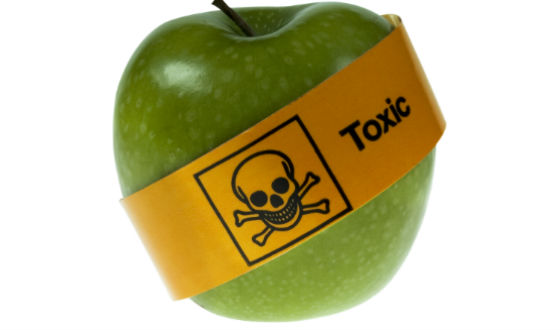The Dutch are a sensible people!
-
Monsanto's toxic weedkiller is banned in the Netherlands!

http://action.sumofus.org/a/monsanto-roundup-banned/2/3/?sub=fb -
Anything that kills "weed" is determined to get banned in the Netherlands.

-
-
Dear Mike Lucey,
We would like to take this opportunity to raise the fact that glyphosate has not been banned in the Netherlands as it has been evaluated and proven to be safe by international and European institutions http://www.glyphosate.eu/safety/safety-authorization-plant-protection-products. The legislation only plans a reduction of the use of herbicides. Read more http://www.hortweek.com/dutch-plan-glyphosate-reduction-not-ban/edibles/article/1306576
Kind regards,
The Roundup Team -
Dear Mr Roundup,
I'm not altogether convince by your Glyphosate Task Force considering who they are.
-
Dear Box,
If you would be interested to have a look at glyphosate’s safety and risk evaluations around Europe from public authorities, please visit http://www.pesticides.gov.uk/guidance/industries/pesticides/topics/pesticide-approvals/Approvals-for-Pesticides-in-the-UK to find more information on health and safety evaluations by the British authorities, as well as http://www.bfr.bund.de/epaper_jahresbericht_englisch_2013/#67/z to read more about glyphosate’s risk assessment by the German Federal Institute for Risk Assessment.
Kind regards,
The Roundup Team -
Don't get me going!
-
-
Someone jumped on this very quickly, methinks there is a reason and facts would seem to be of the 'my =facts are the only ones you should listen to' variety. No doubt DR Shipman could have used this tactic to good effect as well. MR Roundup, I do NOT believe you.
As an aside, the salt federation decided to counter good practise with one of their spokes persons claiming on the bbc news that salt was good for us and we should eat as much as we want to. Facts schmacts.
-
Erm....why is someone from Roundup actually commenting on this forum?

Surely they have better things to do, like making safer products.
-
@olishea said:
Erm....why is someone from Roundup actually commenting on this forum?

Surely they have better things to do, like making safer products.
They have to stamp out the weeds of misinformation, so to speak

-
You wouldn't want any seeds of doubt falling on fertile ground now would you, better get in there at the grass roots and eradicate any pests.
-
I would not deny the Roundup team their opportunity to speak, it's a valuable part of democracy, after all. And of course, the same should be true for those who hold alternative opinions on the subject...
The case against Glyphosate. -
@trogluddite said:
I would not deny the Roundup team their opportunity to speak, it's a valuable part of democracy, after all. And of course, the same should be true for those who hold alternative opinions on the subject...
The case against Glyphosate.Excellent Read.
The thrust of opposition has quite often been the "What should happen if these new GMO species run amok"
This article points also to the rising number of weed species that have become resistant to Glyphosate. -
@trogluddite said:
I would not deny the Roundup team their opportunity to speak, it's a valuable part of democracy, after all. And of course, the same should be true for those who hold alternative opinions on the subject...
Absolutely, just strange how they found their way over here!
They posed quite a political response too; it is banned for sale to the public yet the Roundup team say, "The legislation only plans a reduction of the use of herbicides."
So no, Roundup is not banned. But it is banned for sale to the public. This speaks volumes.
-
Dear Roundup Team,
Could you explain why you are using an @gmail.com email account

Mike
-
@dale said:
The thrust of opposition has quite often been the "What should happen if these new GMO species run amok"
Naturally, it is right to be concerned about this, but I must admit, I feel that the over-emphasis on the 'zombie mutant take-over' probably suits the big corporations rather nicely. There is actually very little independent evidence either way on that one, and being able to produce more food with less resources is a wish as old as agriculture itself. Nor is there any particular reason to assume that GMO foodstuffs should be harmful - at least, no more harmful than the fat and sugar soaked diet that the food industry seems to prefer that we eat already. Caution is wise, of course - but I feel that, sadly, the only opposition to GMO that gets heard (shhh, you can hear it if you're very quiet) is always of the "zombie apocalypse" kind - making it very easy for the corporations to shoot down; "just a bunch of luddite tree-hugger loonies".
Meanwhile some very real issues about the state of global food production go unmentioned. The science itself is neither good nor evil - as ever, it is who is is control of it and what they use it for that are the problem.
Whether GMO is safe or not, it is clear that the likes of Monsanto are very keen on cartels and (preferably) monopolies. This is not good economically, nor scientifically - in both senses we could be looking at essentially a mono-culture. Once every farmer is growing one of the same few varieties of crops, what happens if a new pest or plague evolves that can defeat the GMO "firewall" - that's it, the whole lot goes, and we'll have reduced biodiversity such that finding new replacement varieties will be all the harder.
And once all the other sources of seed and feedstock are driven out of business, what reason it there for the few that are left to keep the price reasonable?
Well, you could always breed your own, I suppose - except that every seed and every grain of pollen contains patented DNA fragments - and the folks from the "not a legal entity" mentioned by Roundup will be calling to round you up and get very legal indeed. -
yes this ^^^
FOOD INC. is a good movie on this topic.
-
I tend to avoid using Roundup in planting schemes as it shuts down essential root-fungal associations (mycorrhizae) and harms human health... 'Thus, glyphosate enhances the damaging effects of other food borne chemical residues and environmental toxins.':
'Glyphosate’s suppression of cytochrome p450 enzymes and Amino acid biosynthesis by the gut microbiome: pathways to Modern diseases - entropy 2013, 15, 1416-1463' - full text link to mdpi - a science publisher: http://www.mdpi.com/1099-4300/15/4/1416?utm_medium=referral%26amp;utm_source=pulsenews
and like this:
"Glyphosate tends to be moderately persistent in soils and there are several half-lives documented for the herbicide, ranging from 3 days when applied to a silt loam, to 270 years when applied to a clay loam." -'The Synthesis and Reactivity of Novel [Co(L)(PMG)]n+ Complexes. MSc thesis, Cusiel, University of Canterbury, NZ'. Link to a NZ university: http://ir.canterbury.ac.nz/handle/10092/1312
I've studied herbicides towards my degree and it was categorically stated that Roundup broke down completely in the soil and was not residual and was 'safe'. It is hard to find papers critiquing modern herbicides, and with the second paper, though published in 2005 has only been cited twice. Researching Monsanto may be bad for your ability to attract research funding perhaps.
I too find it mind-boggling that ms would actually create an account here.
-
So Monsanto is using SketchUp? Interesting... how?
unbelievable...
@roundup said:
If you would be interested to have a look at glyphosate’s safety and risk evaluations around Europe from public authorities, please visit ... http://www.bfr.bund.de/epaper_jahresbericht_englisch_2013/#67/z to read more about glyphosate’s risk assessment by the German Federal Institute for Risk Assessment.
yes, sure... and they do a lot more for the industry... great government!

http://permaculturenews.org/2012/11/01/why-glyphosate-should-be-banned-a-review-of-its-hazards-to-health-and-the-environment/
http://cphpost.dk/news/herbicide-health-risks-underestimated.9043.html
http://www.gmwatch.org/index.php/news/archive/2014/15519-the-glyphosate-toxicity-studies-you-re-not-allowed-to-see
http://www.globalresearch.ca/monsanto-roundup-the-impacts-of-glyphosate-herbicide-on-human-health-pathways-to-modern-diseases/5342520
http://www.scientificamerican.com/article/weed-whacking-herbicide-p/
http://www.collective-evolution.com/2013/06/14/groundbreaking-study-links-monsantos-glyphosate-to-cancer/
http://www.ncbi.nlm.nih.gov/pubmed/17634926
http://responsibletechnology.org/gmo-dangers/health-risks/reference-health-effects-of-glyphosate
...And not to forget the global death of the bees...
http://www.globalresearch.ca/death-and-extinction-of-the-bees/5375684
Advertisement








